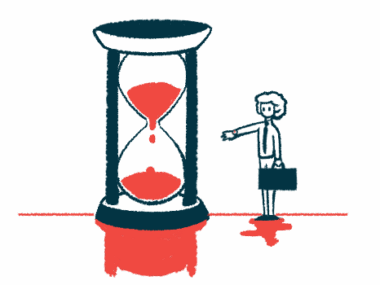Mighty Mind Strategies for Managing Pain
Written by |


Over the past year, I have become an expert in pain — something I never wanted to be. However, daily severe muscle spasms, cramping, one surgery, and an emergency room visit later, here I am. Despite my plethora of pain medications, I still suffered. Then, I realized that I needed to engage my mind to manage the pain. I devised a few strategies to cope with the pain, which I will share with you now. Keep in mind that pain is highly personal. These strategies working for me doesn’t guarantee they will help you. However, I sincerely hope that they do.
1. Put your pain in a vessel. I visualize a large clay jar. I imagine shouting my pain into this jar, pouring it all in until there is no pain left in me. I put a lid on the jar, locking all the pain away. Then, as the pain ends, I set my jar in a river and watch the water carry it away.
2. Let the pain wash over you. I picture myself as a boulder in a stream. The pain is the water moving around me, insignificant and unable to affect me. When I was in an ambulance, this one actually took my pain down from a 7 to a 3.
3. Meditate on the temporary nature of pain. My best friend is training to be a vet, and one of the toughest things about her job is that she can’t communicate to the animals that their pain will end after she treats them. As humans, we have the gift of understanding time, and that how we feel now probably won’t last forever. I have such a terrible time with chronic muscle pain due to severe spasms that I have been unable to write my column for months. Part of what gets me through this nightmare is focusing on the relief I will have when my pain medication kicks in. I know that in one hour, the medicine will take the pain away.
3. Cry, scream, and beg. I used to think that crying and vocalizing my pain meant I was weak. Now, I know that it actually helps. I tend to hold my breath when I am in pain. When I vocalize, I have to inhale and exhale. It also gives someone a cue to comfort me by making my suffering visible. I have a theory that pain is much less powerful when you don’t have to experience it alone.
Again, these are strategies that I have devised based on my own experience. I hope these tips give you some relief as well.
***
Note: ALS News Today is strictly a news and information website about the disease. It does not provide medical advice, diagnosis, or treatment. This content is not intended to be a substitute for professional medical advice, diagnosis, or treatment. Always seek the advice of your physician or other qualified health provider with any questions you may have regarding a medical condition. Never disregard professional medical advice or delay in seeking it because of something you have read on this website. The opinions expressed in this column are not those of ALS News Today or its parent company, Bionews Services, and are intended to spark discussion about issues pertaining to ALS.






richard schachter
Is there any ONE ALS center in the NYC area that the community can recommend?
1) I am looking for a medical group or specialist who thinks outside the box when it comes to recommendations for medicines incl. support to enroll in appropriate clinical trials or accessing experimental treatments. Any suggestions/recommendations?
2) What is the BEST source for information on the usefulness of RADICAVA-if I've had ALS symptoms 1+year?
3) Are any of the ALS support groups helpful with suggestions as to the currently available treatment process-or are these primarily supportive more on an emotional level? (Looking for survival coping strategies). Eventually, I'd welcome sharing my thoughts for improving life quality...but am brand new to this tragedy and seek to engage others with experience here. Many thanks for your answer. Richard
Jay Stamatis
God bless you Richard